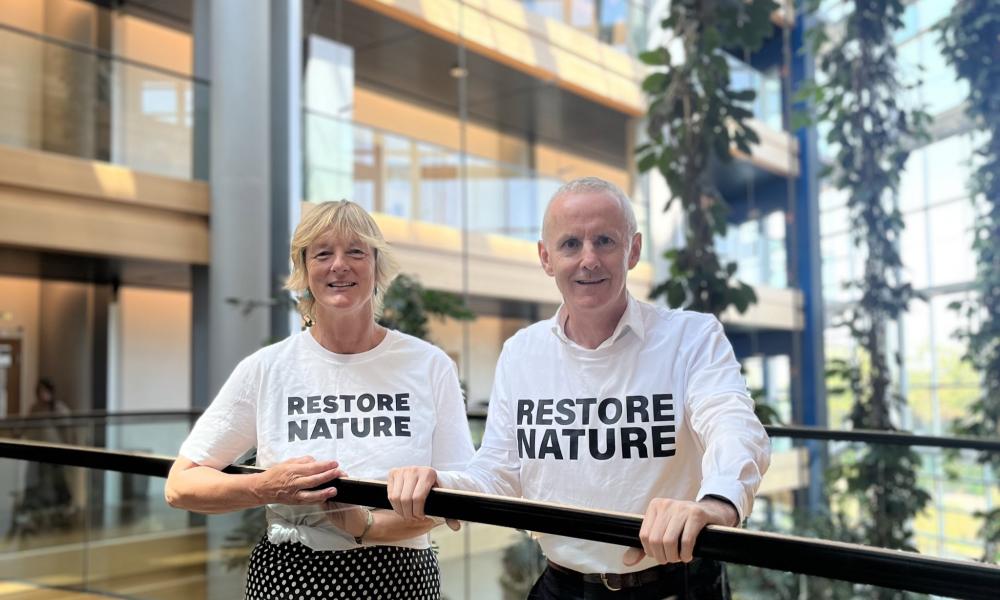EU reaches final Nature Restoration deal

EU negotiators have reached a final deal on the Nature Restoration Law (NRL) following months of negotiations between MEPs and Member State governments. The NRL aims to restore the majority of Europe’s degraded ecosystems by 2050. The agreement is particularly relevant for Ireland, which has the most depleted wetland habitats on the planet.
Every EU country must have restoration measures in place by 2030, covering at least 20% of EU land and sea areas, under the final agreement. The deal hammered out at 11pm in Brussels last night included measures for restoring drained peatlands, one of the most controversial topics which conservatives in the Parliament had sought to remove.
EU countries must put in place restoration measures for drained peatlands on at least 30% of such areas by 2030 a quarter to be rewetted), 40% by 2040 (one-third to be rewetted) and 50% by 2050 (also one-third to be rewetted) but rewetting will remain voluntary for farmers and private landowners. For towns and cities meanwhile, the Nature Restoration Law commits to increasing urban green spaces like parks. In this year’s budget, the Irish Green Party secured an historic €3bn fund earmarked for nature restoration, in anticipation of the binding Nature Restoration Law.
MEP for Ireland South Grace O’Sullivan, who sits on the Parliament’s Environment Committee welcomed the agreement:
"Over 80% of Europe’s natural habitats are in poor shape, and Ireland unfortunately ranks as one of the most nature-depleted countries in the world following hundreds of years of colonisation, deforestation, intensive agriculture and human interference. The Nature Restoration Law we have on the table is not perfect by any stretch of the imagination, but it is a crucial step to turning back the clock on our war on nature and discovering the benefits of nature restoration for our economy, our food production, not to mention public health. This is a landmark decision for climate and biodiversity.”
Green MEP for Dublin Ciarán Cuffe said:
“This agreement should restore faith in the hearts and minds of hundreds of Irish people who have gotten in touch to support this law. Last night, a fair and pragmatic approach won out over a short-sighted attempt to kill off this legislation. Although significantly weakened, it offers hope that we can begin to reverse the decline of pollinators and restore our peatlands. It also means more green spaces in our towns and cities, such as ‘pocket parks’. This is increasingly important in places like Dublin, with more apartment living than ever before.”
Malcolm Noonan, Minister for Nature, Heritage and Electoral Reform said:
“Our nature restoration objectives can only be achieved with the full support of the farmers, fishers and foresters who own or manage our lands and seas. That’s why, from the outset, I have emphasised the need for dedicated, long term funding to support nature restoration measures, and that was delivered with the establishment last month of the €3.15 billion Climate and Nature Fund. Ireland stands ready now to turn the tide on nature loss, and as we embark on this journey to restore our relationship with the natural world, we can ensure that both people and the natural world feel the benefits.”
The text of the final agreement must now go through a process of legal scrutiny and translation into the 24 languages of the EU. A final vote in the European Parliament is expected in early 2024.


